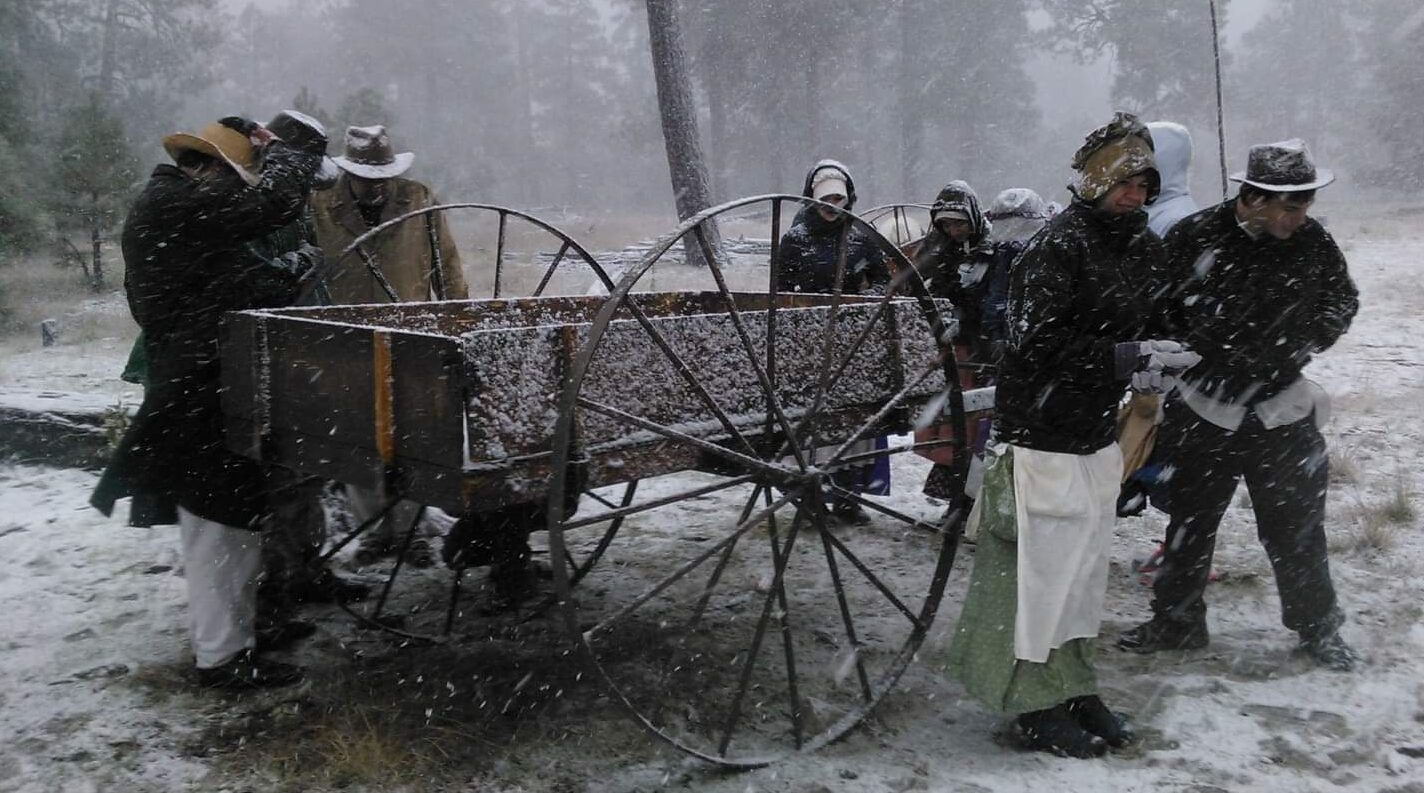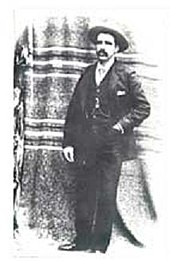Willian Augustus Tolman & DiamondField Jack
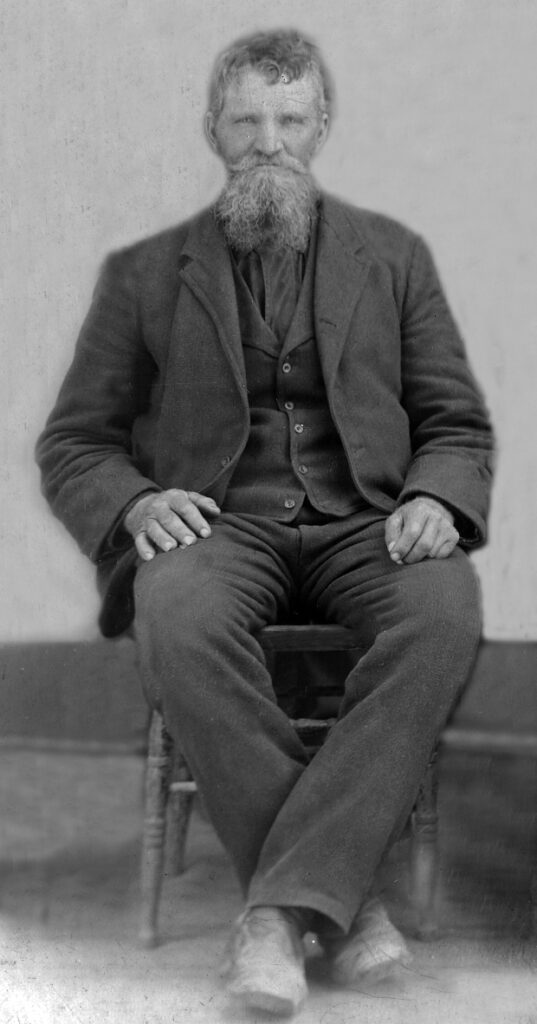
William Augustus Tolman, is my 2nd great grandfather, his son William Cyrus Tolman is my great grandfather. My grandfather Almo J Tolman would have been about 5 years old when his grandfather William died on the 25 June 1920 in Burley, Cassie, Idaho. I can just picture my grandfather sitting on his grandpa William’s knee, intently listening to him telling of stories and adventures of his life growing up in Utah, Idaho and Canada. The same as I did when my grandfather told me stories.
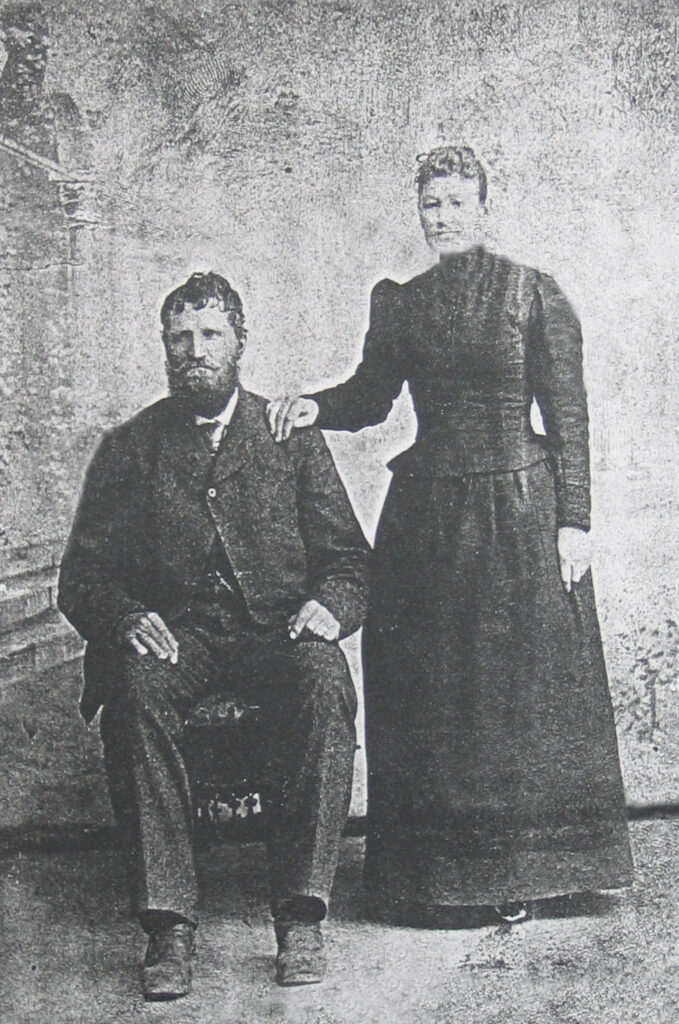
William Augustus Tolman was born on August 29, 1850 in Toole, Toole, Utah to Cyrus and Alice Bracken Tolman. He married Marintha Althera Bates on the 15 July 1872 in Salt Lake City, Utah. They were the parent of eleven children.
The follow story takes place in 1894 in Idaho.
In the spring of 1894 Jack Davis a young man described as having a pleasant look and manners, rode into the Snake River Valley of Idaho. After a failed attempt at prospecting, he was hired by several different cattle companies and finally with the Sparks- Harrell Cattle Company. Jack Davis was known as a story teller, because of his many adventures and talk of a diamond mine. This is supposedly how he was given the name of Diamond-Field Jack.
In the area around Rock Creek, now in Twin Falls County, was the seat of cattle industry and around Oakley was the headquarters of the sheepmen. The cattlemen tried to establish a line to keep the sheep off of what they considered their ranges. They hired Diamond-Field Jack to ride the line and keep the sheep and sheepmen from intruding into cattle country. From time to time he would come into contact with sheepmen and advice them to leave the vicinity and stay off the land.
According to the story, William Tolman, was large fella and thought he would try and scare Jack out of the Country (area) and in the process ended up getting shot. The wound was not fatal, and when Tolman saw that Diamond-Field could not be bluffed, he pleaded for his life. He gained Jack’s sympathy by referring to his dependent family. Diamond-Field gave him first aid and helped him into the hands of his friends. A history of the Latter-day Saint Settlement of Oakley, Idaho
In the second story as told by Lorain Taylor in the history she wrote, Cyrus Tolman, Father, Frontiersman, Pioneer, says that William Tolman rode into Jack’s camp catching him unawares but in their argument Jack got the drop and shot Tolman.
“One day while he was out taking care of his sheep on Shoshone creek, William heard shooting down toward the stockmen’s cabin, about three miles away. He left the sheep and went to the cabin. We he knocked on the door Diamon-Field Jack answered the door. He said, “Well Tolman, I guess you came to get me.” William had left his rifle on his horse and he said, “No. I was expecting my son William Cyrus and came to find out what the shooting was about.”
They argued and Jack got the drop, raised his rifle and shot William thru the upper arm cutting artery. The bullet came out the top of his shoulder blade. When he saw that Diamond-Field could not be bluffed, he pleaded for his life. He gained Jack’s sympathy by referring to his dependent family. Diamond-Field gave him first aid and helped him into the hands of his friends. Although he lost a lot of blood, the wound was not fatal. This wound left his arm partially crippled.”
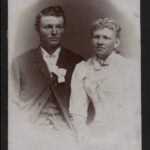
William Cyrus Tolman, the son William Augustus Tolman, mentioned in the story below, wrote on 17 September 1951, to the Deseret News in response to an article they published on 15 July 1951, titled Hang Him Again!, to the shooting of his father William August Tolman by Diamond Jack Davis, also know as Diamondfield Jack in Idaho. He wrote it to correct miss information they had published and to correct the record on facts.
The following are his words, taken from a transcript signed by him and written by Ruth Edmondson Tolman my grandmother.

“Father and I, William A. Tolman, were partners in the sheep business. I was with the sheep most of the time. For several years I ranged them in the Rock Creek Mountains until the snow got too deep for them to feed. Each year at this time I moved the sheep West over the ridge through “forbidden country”. This was the trail I had to take from the summer range to our winter range on the Salmon River desert.
Sometimes father would come out and take my place with the sheep. On this particular occasion, he brought a boy by the name of Jim Jenkins, to stay with him while I went home. About two weeks after my arrival home, I wrote father that I was coming back to hunt deer in that area. A few days after father received my letter, he heard shooting down the canyon. Thinking it might be me, he left the boy with the sheep and rode on down the way. Father had ridden only a short distance, when he saw two men loading a large log and stopped to help them. The men thanked father and he rode on. A few minutes later he saw a man near an old cabin a short distance away, and rode over there to see who it was. Father was riding one of my horses and my gun was in the scabbard, on the horse. After seeing this man go inside the cabin, he got off the horse and walked to within a few rods of the door. As my father approached, Diamondfield Jack stepped outside and said, “I guess you have come to kill me, Tolman.” Answering father replied, “I never thought of such a thing. I’m looking for my son.” Jack then raised his gun and shot father who was unarmed.
The man that father had help with the log, heard the shot and saw father fall. He started to run toward him and Jack said, “Don’t go near him or I will shoot you.” This man said, “I’m going to him so shoot if you will.” He ran to father’s side and turned him over, then went to the creek and filled his hat with water and washed father’s face, and gave him a drink. By this time Jack was putting his pack on his horse, and walking over to the horse father had been riding, took my gun from the scabbard and put it on his saddle and rode away.
I have forgotten the man’s name who took care of father, but when Jack had gone, he took father into the cabin and looked after him that night. Having made father as comfortable as possible, he went to see about the horse, and found that the bullet that wounded father, had also wounded the horse. The bullet had gone through father’s arm, through the horse’s shoulder and lodged just inside the skin on the other side. The next morning the man took father to a doctor for medical care.
Meanwhile, the boy father had left with the sheep, rode to our home in Marion to let us know what had happened. It was about three in the morning when the boy arrived. I got up, dressed, saddled my horse and rode thirty miles to Albion where I contacted the sheriff and asked him to arrest Diamondfield Jack. Returning to Marion, I took another horse and rode to Oakley and asked Heber Bunn if he would go look after the sheep. Mr. Bunn agreed, and left that day to look after them. The next afternoon, I left on my horse for camp and taking a cut through the mountains, I arrived before daylight. I rode near the door of the camp and called Heber, and told him who I was two or three times so he would know who he was talking to. I was afraid he would start to shoot if he didn’t known who was coming in.
It was necessary for Mr. Bunn to return home. So I asked him if he would send Charles Jenkins to come and help me with the sheep. Jenkins arrived at camp the next day, and we moved the sheep down into the foothills for a time. One night about midnight, two men came riding into the camp shooting. I grabbed my gun and jumped to the ground by the front wheel of the wagon. One of them started into the camp and I took a shot at him but missed. I did this to scare him away, and he turned and rode up the mountainside. the other man turned his horse and rode into the deep wash. I also shot at him. Two men across the wash were shooting at the flashes of my gun. I spoke to Charles and he didn’t answer. Thinking he was dead, my heart almost jumped into my mouth, but he was all right. When we got back in the wagon we found that one of the bullets had gone through the board at the head of the bunk and lodged in my overcoat under my pillow.
There was enough snow on the ground to make it easy to follow the horses’ tracks. This way, we followed them to their cabin and shot one bullet through the door. No one came out until about one A. M. At this time all but one of them came out and started for Rock Creek. The other one came to within about a half mile of our camp and stopped. I took a shot in front of him. His horse reared on his hind legs and when the rider got control of him again, he took off as fast as his horse could run.
A few years later, father and I moved up to Lacomb, Canada. We were there for six years and on one occasion went to Cardston, Canada on business. We stopped in a restaurant for something to eat. There was another man sitting nearby and when I sat down he asked me my name. When I said, “Tolman” he looked very surprised. He then asked me if we were the men that had owned sheep in Shoshono, Idaho. I answered, “Yes.” He told me why he had left the United States and come to Canada. He said that he was one of the men that had helped to kill John Wilson and Daniel Cunningham, and that it was not Diamondfield Jack who had killed them as everyone had thought. He also stated that he and Jim Bowers killed Johnny first and covered him up with a quilt and waited until the other herder, Daniel, came in. While he was looking to see what was wrong with Johnny they shot him in the stomach and left.
After we had left the restaurant, father told me that he had always suspected that James (Jim) Bowers had killed John Wilson and Daniel Cunningham, because he had met Bowers on the road the day after the shooting, and after riding a few miles together, Bowers turned and rode in the direction of the Cunningham Camp.
The story that man told me in the restaurant in Canada coincides with the letter I received from a woman in Wells Nevada stating that Diamondfield Jack had stayed the night at her place. He told her that he had shot Tolman and was going South, so Diamondfield had started riding South before Cunningham and Wilson were shot.

The Deseret News Magazine, on May 1952 published in part, the above letter, taking from it the parts they felt were most relevant to the story that had been previously had written and published. I choose to tell the more complete story found in the genealogical records of my grandfather Almo J Tolman for the reason that it gives a little deeper look into the life of William Augustus and the early years of William Cyrus Tolman.
I hope you have enjoyed reading this story as much as I did in find and putting together links and photos. In the process I made a partial file on Diamondfield Jack and some of the news clippings I came across on him for my posterity to read.
- PhotoCredits:
- Deseret News (Salt lake City, Utah, 25 May 1952, Sun, page 84, Backstage & Hang Him Again
- Wikipedia.org, https://en.wikipedia.org/wiki/Diamondfield_Jack
